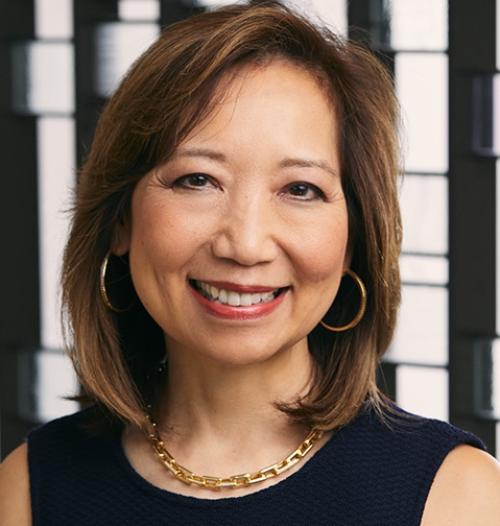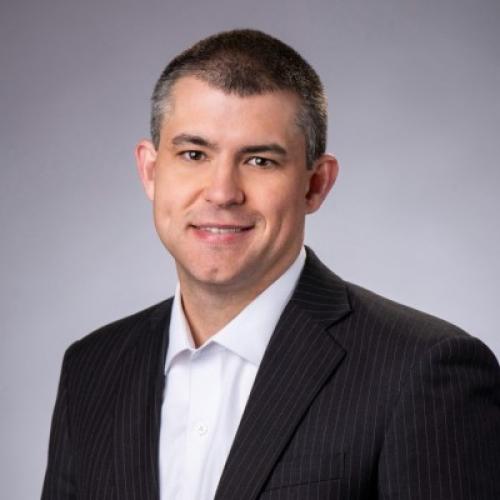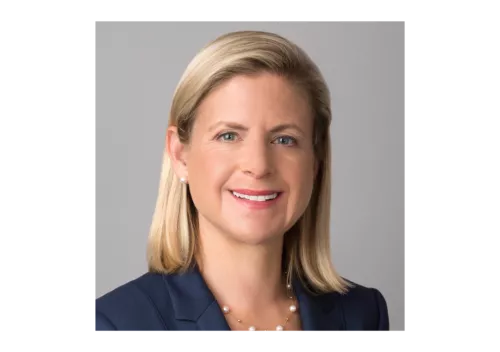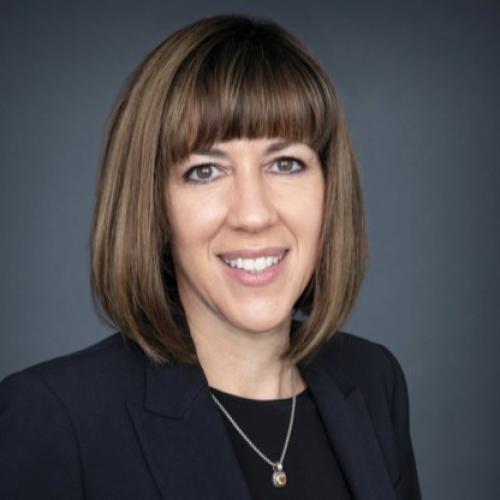Pride International
![]()
Martha Steinman (second from left) of Dewey & LeBoeuf with, from left to right: Pride’s Brady Long, Elizabeth Wright, Brian Moffatt, Greg Looser and Khaled Sharafeldin
We took a fresh look at our governance practices and adopted a no-holds-barred approach in terms of evaluating where we felt improvements were necessary or advisable,’ explains Brady Long, general counsel and corporate secretary at Pride International.
Perhaps the most pressing issue was the low level of support the board of directors attracted at the 2009 annual shareholder meeting: the CEO received only 47 percent of votes cast; other directors got between 55 percent and 61 percent.
The company identified several reasons for the lower than usual support, including negative recommendations from proxy advisory firms based on a perceived conflict of interest because the company employed a law firm where the CEO is a partner, certain executive compensation practices and lowering the poison pill threshold from 15 percent to 10 percent, even though this was done because a competitor had acquired equity derivatives but had not declared a beneficial ownership report to the SEC.
‘We really did start from scratch and asked ourselves, What types of governance practices are we lacking? What makes sense to implement now? For the things we think do not make sense at this time, do we have a good, principles-based reason for not doing so?’ recalls Long. In order to answer these questions, the company turned to a specialist governance consultant, liaised with outside counsel and – probably most significantly – engaged more with shareholders. It obviously found the right answers because the panel selected it as a runaway winner in the category of best overall governance compliance and ethics program for a small to mid-cap company.
According to the judges, Pride International provided the best response to shareholder concerns of any company the panel saw and went from having below average
governance to being a market leader in a
remarkably short time.
So what did the company do that was so impressive? It separated the role of chairman and CEO – always a hot-button issue with governance advisers – and
discontinued the relationship with the law firm at which the CEO works, stating that it would not employ that firm while the CEO remains on the board. The CEO resigned from the nominating and governance committee, which gained a new chairman. Pride also employed an independent consultant to conduct the annual board and director assessment process, which helped define the effectiveness of the board, the
committees and the individual directors.
In terms of compensation, the company significantly increased stock ownership guidelines for directors and executive officers, and included a stock retention feature for individuals who do not satisfy the guidelines. The long-term incentive program for officers was modified to introduce performance share awards based on relative total stockholder return against a selected peer group of companies.
With all these changes in place, Pride International held in-person discussions with the leading proxy advisory firms, during which it explained its rationale and plans for future enhancements. As a result, the entire board received ‘for’ recommendations from all major advisers. At the 2010 annual meeting, all directors received more than 90 percent support.
So far, so good
‘We are not really done,’ says Long. ‘We are already looking at a bunch of new issues and ideas and will be discussing them at the board level. We are always on the lookout for innovation. I sense a tremendous amount of momentum behind this effort.’
The range of governance reforms is impressive, especially when considering the very short time frame in which it was achieved, but governance is not the only factor the judges considered in selecting the winner. In the past year or so Pride has made extensive advances in the field of ethics and compliance. During the period under consideration for the 2010 award, the company
conducted in-person ethics and compliance training
in 10 countries.
This training covered all employees who were eligible for bonus-related compensation; any employee who has not completed the training is not eligible for a bonus. In the spirit of sharing best practices the company also performed free advisory work for four other public companies in the US and one large not-for-profit organization, which sought advice on building an ethics and compliance program.
Management at the company was actively involved with the International Association of Drilling Contractors (IADC) and worked to expand membership of its ethics and corporate compliance committee (the committee itself was founded by Long in 2007). Pride also helped organize the IADC’s inaugural conference on anti-bribery compliance, held in September 2009 and attended by 100 industry participants.
The company will continue to advance its governance and ethics programs and work within the broader community to further develop the debate on best practices. It will continue to engage shareholders and governance experts to boost its internal programs.
Pride’s victory in this category is proof that open and frank conversations can turn what many consider problems into advantages, and lead to the creation of a truly world-class governance program.








